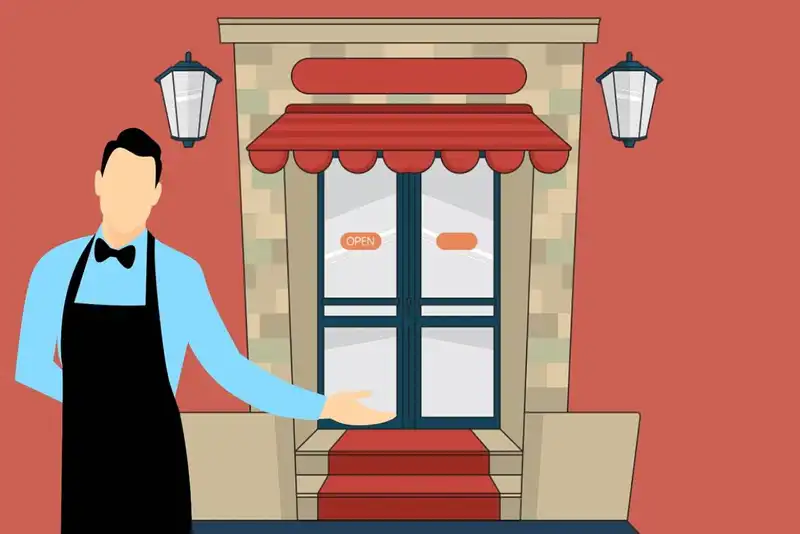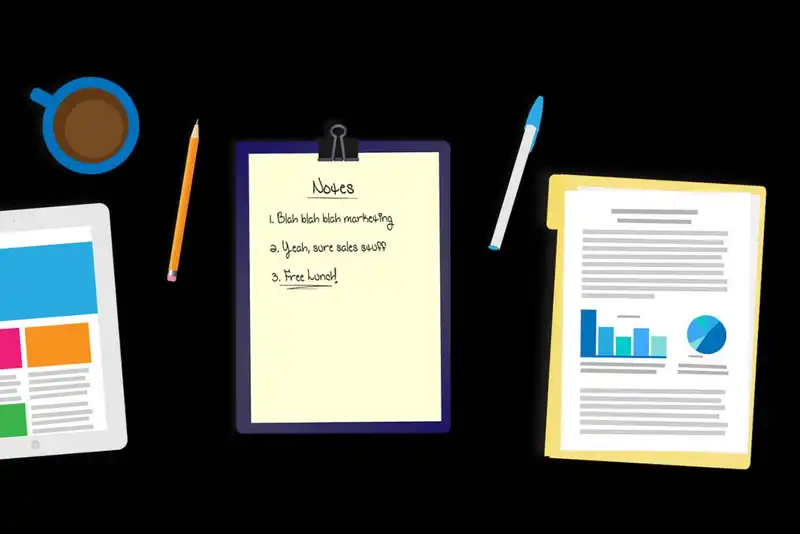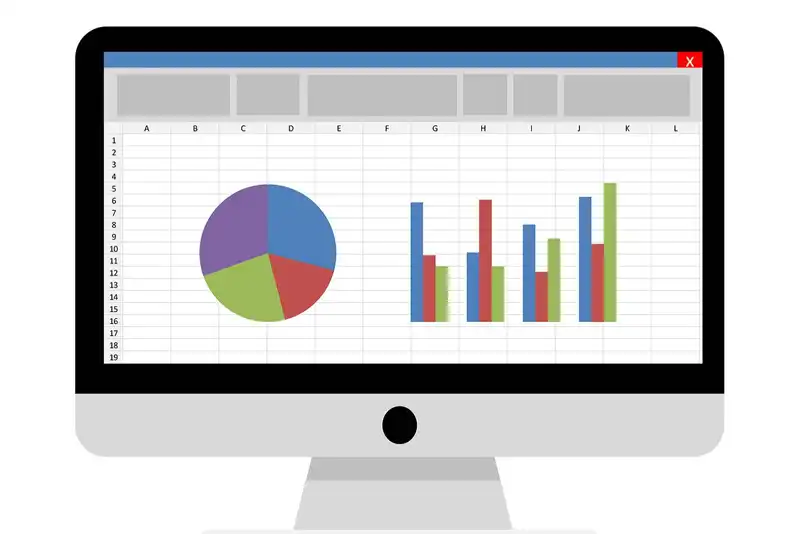Everything You Need to Know About Restaurant Management

What is Restaurant Management?
Restaurant management requires performing many important tasks, as well as holding other restaurant staff members responsible for their assigned tasks. Restaurant managers traditionally have experience in the food industry that provides them with a very helpful understanding of what a managerial role entails.
The responsibilities of a restaurant manager traditionally includes tasks like providing training for new hire employees and food safety monitoring. However, there are virtually endless responsibilities that restaurant managers can be tasked with dependent on restaurant needs and future business expansion.
Effective restaurant management is an every day effort that requires continual professional growth. Restaurant owners must select great restaurant managers if they want to run a successful restaurant long term as well as make sure team members stay on track.
Restaurant management is constantly evolving, with new technological advances like social media and online ordering capabilities for restaurant staff to adjust to. Even customer expectations and atititudes are changing, customer service in the restaurant industry has more focus than ever before on providing a customer experience that is both personalized and meaningful.
The Challenges of Restaurant Management

Those with experience in the restaurant business know that the restaurant industry is both fast-paced and challenging. A restaurant manager position requires overcoming challenges faced when running restaurant operations, including-
1. Menu planning- A restaurant menu is a staple of a successful restaurant that necessitates careful consideration and proper planning. Creating a restaurant menu at a new restaurant requires formulating and constantly reevaluating menu pricing techniques.
Make sure you take time to consider food costs when menu pricing in order to better understand both restaurant needs and customer needs. A successful restaurant may base menu pricing on the competition and take care to list menu items based on menu psychology principles.
A restaurant manager should also consult menu pricing with team members to get input from important staff members such as chefs and servers. The most effective menu pricing techniques include input from those directly involved in running restaurant operations every day.
2. Customer experience- A great customer experience can determine whether you will have a successful restaurant or not. No matter how attractive your dining room or social media pages appear, your restaurant will not retain customers long term if your customer experience is unsatisfactory.
Providing great customer service and overall outstanding customer experience depends on each restaurant staff member making sure to take time and take care during interactions with customers. Both social media communications and digital connections are also part of the customer experience and should be treated with the same care and consideration.
3. Restaurant marketing- Developing a restaurant marketing technique can be overwhelming, especially in addition to the day to day demands that restaurant managers and restaurant owners already face.
- Restaurant management tips for marketing include-
- Creating a brand that reflects your restaurant's values
- Developing a restaurant marketing plan for upcoming months
- Social media engagement optimization
- Cultivating a unique social media restaurant marketing plan
- Loyalty plan implementation
Restaurant Manager Responsibilities
Every manager has responsibilities they must undertake for running restaurant operations effectively. These responsibilities may include-
1. Inventory management- An important part of running restaurant operations includes inventory management processes. Inventory management is an every day responsibility that can have huge consequences or benefits for your restaurant business.
Proper inventory management necessitates keeping ingredients readily available but also avoiding unnecessary food costs and food waste caused by overstocking.
The best way to coordinate inventory management is ordering food products based on restaurant needs while factoring in both labor costs and food costs to optimize accuracy.
Inventory variance is important to track to view discrepancies between actual food cost and ideal food costs projected. Inventory management can help identify issues with food theft, waste, and portions before they develop into larger problems.
2. Restaurant staff schedules- Often considered one of the most frustrating restaurant management tasks, staff member scheduling is a main restaurant manager's responsibility. Thankfully, restaurant staff scheduling software can simplify and streamline the entire scheduling process.
Individual team members can also help manage the scheduling process instead of the restaurant manager solely being responsible. Many restaurants allow their staff members to access scheduling software in order to swap or volunteer for employee shifts.
3. Accounting- Although restaurant owners are responsible for financing the restaurant, restaurant managers are often responsible for keeping the restaurant's finances in order. Pos systems and software programs can greatly decrease the amount of time that a restaurant manager needs to spend on accounting.
Labor costs and food costs can largely be determined automatically with the proper technology. Previously, any labor costs and food costs would have to be manually calculated, leaving a lot of room for human error and wasted resources.
The software can help manage labor costs and food costs by monitoring and adjusting to your restaurant needs and trends. Many restaurants have optimized both their labor costs and food costs through automation and technological advances.
4. Food safety- Every restaurant must consider food safety as its top priority. A food safety violation could result in your business experiencing major fines and in the worst-case scenario, even result in loss of human life.
For these reasons, food safety is an important topic for restaurant managers to train staff members. Restaurant management must also take time and take care to keep up to date on food safety protocol.
Restaurant Management Basics

Restaurant management tips can benefit a manager who is learning about the basics of their role. There are so many different responsibilities for a restaurant manager to consider at the same time that it is important to take time to break down the role to its basics.
Customer service is a top priority for any restaurant manager as well as all other staff members. Focusing on providing the best customer experience possible will increase the likelihood of a customer returning to your restaurant in the future.
Even if a customer complaint is not one you necessarily agree with, it is important to make the customer feel valued and heard. The goal of customer service is to encourage the customer to return to your business and decrease the likelihood of them leaving a review that will damage your reputation and bottom line profitability.
A restaurant manager is also in many ways a relationship manager. In the restaurant business, many team members rely on one another to get their jobs done effectively.
One best way to increase long term employee retention rates and foster healthy employee relationships is by implementing an open-door policy. Encourage team members to stop by your office to express any concerns so that you can address issues before they develop into a full-blown human resources disaster.
To avoid there being interpersonal issues, a great restaurant manager will regularly check in with their team members about their roles and relationships at the restaurant. This could be as simple as a scheduling adjustment or as severe as a sexual harassment allegation.
Hiring the right staff members for each role, whether you are onboarding back house or front house team members is essential for long term business success. Take care when contacting job references and take time to give new hires a trial period to make sure they are the best fit possible for your restaurant.
When monitoring your restaurant's cash flow it is essential to factor in labor costs and food costs appropriately. To help manage financials, a pos system and various software programs can be invested in and utilized.
Restaurant management tips for marketing and advertising opportunities include using social media and customer experience to your advantage. A great customer service experience can motivate your customers to spread the word about your business to their network.
If utilized correctly, social media can provide low-cost advertising to potential customers in your area. Online ordering specials listed on your website can additionally bring in new customers who may have purchased food from a competitor otherwise.
A great restaurant manager will constantly look for creative ways to expand your business. Growth opportunities can range from offsite catering to a new happy hour installation. Any business expansion should always be based on restaurant needs making sure to factor in labor costs and food costs.
What is Restaurant Management Software?
Restaurant management software can simplify and steamline tasks and processes, freeing up valuable employee time and resources. For example, employee management of both back house and front house employees is much less tedious with a software program that factors in employee scheduling.
With the average restaurant profit margin between 2-6%, there is little room for error. Optimizing labor costs and food costs is easier than ever before with the proper software programs in place.
The majority of restaurant customers prefer to pay with their cards when they visit a restaurant. A great restaurant pos system will keep your customers happy and their data secure.
Restaurant management software will not only improve your customer experience but it will also improve your employee experience. Employees are able to be more productive when they are not wasting time on menial tasks like data entry. Additionally, customer service is optimized when employees have better engagement levels.
The Benefits of Using Restaurant Management Software

Restaurant management software offers its users a wide variety of benefits for every day business operations. Restaurant management software benefits range from customer convenience to customization options.
A pos system is a great example of technology used for business optimization. When considering which pos system to invest in there are multiple factors to examine based on restaurant needs and wants.
First, would you like a legacy system or a mobile system? A legacy system is situated inside your storefront while a mobile system allows access through the cloud.
Depending on how customized you want your pos system there are different options available. For instance, do you want online ordering or payment processing to be included in your pos system? Considering business needs before you invest in a system can save you a lot of time and money down the line.
Restaurant management software can optimize many back house and front house management tasks. Features offered by restaurant management software include tip processing, scheduling, and a centralized communication platform for team members to interact on.
Inventory management software helps many restaurants run more productively. An inventory tracking feature can help keep labor costs and food cost low while keeping your inventory appropriately stocked for future shifts.
It is essential that any restaurant management software purchase integrates well with existing or future software. The ability to incorporate softwares with tools your restaurant already uses will make it easier for team members to acclimate to newer technology.
Restaurant management software is also valuable for menu pricing and menu planning processes. Staff members can easily access and update the restaurant menu depending on specific shifts and specials offered.
Regardless of which software programs you choose to invest in it is crucial to vet the software company's customer service and technical support capabilities. Proper vetting provides peace of mind should there be any future difficulties with the software and decreases the likelihood of technical issues slowing down your restaurant operations.
Conclusion
- Managing restaurant operations requires much diligence and hard work but can be very rewarding.
- Restaurant manager responsibilities range from customer experience optimization to advertising.
- Restaurant management tips for marketing and advertising include social media ads and obtaining great customer experience reviews.
- Various responsibilities like staff scheduling and managing labor costs can be simplified and streamlined with restaurant management software.
- Restaurant management software usually includes a pos system that can help with both employee needs and business needs.
- The best restaurant is one that has a good restaurant manager as well as outstanding team members on staff.